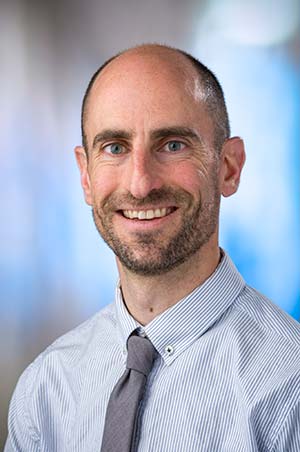
How blood cancer research might help organ transplant patients
Each day, 13 patients awaiting transplants for severe kidney disease in the U.S. lose their lives before a compatible kidney can be found.
Frequently, it is simply that there are not enough donated organs available, but sometimes it is because the right donor is too rare. Of the 92,000 people in U.S. waiting this year for a kidney transplant, about one in ten will have an especially hard time finding a compatible donor.
These “highly sensitized” patients are at higher risk of dying while still on the waiting list and of rejecting a transplanted kidney if they receive one.
When blood samples are tested from that group of patients, they are found to carry immune proteins — antibodies — likely to react against most of the kidneys available from potential donors.
“Having antibodies against your potential donor is one of the fundamental reasons for rejecting a transplanted organ, which is obviously a huge issue,” said Joshua Hill, MD, a physician-scientist at Seattle’s Fred Hutchinson Cancer Center. “If you are unable to receive the majority of kidneys that are out there, you are going to be stuck on the waitlist for a long time, and you are probably going to die on the wait list before you can get one.”
Hope for these highly sensitized patients is being kindled by researchers like Hill, a specialist in infections and immunology, whose work seldom involves kidney disease. He and his team are primarily focused on engineering our immune systems to fight blood cancers such as leukemia, lymphoma and multiple myeloma, and also to prevent or treat viral infections in vulnerable patients.
The culprits: long-lived plasma cells
Hill and his Fred Hutch colleagues, along with those at the University of Washington and Seattle Children’s Research Institute, have used their expertise to zero in on a type of antibody producing cell that may be keeping donated organs out of reach for thousands of patients needing new kidneys, hearts, lungs or other vital organs.
The culprits, they suspect, are plasma cells, which are members of an antibody-making family of blood components.
At the head of this family is the B cell. Think of it as a mother ship, housing microscopic engineers who design antibodies in response to a perceived threat. Once a threat is encountered, the original “naïve” B cell spins off a variety of more specialized descendants. Plasma cells are B cell descendants that have become fully specialized. They have matured into machines whose sole purpose is to churn out antibodies of a specific design.
Several different drugs are used in organ transplantation to clear out B cells that might produce antibodies potentially hostile to the donor organ. But Hill and his team contend that the role of the more specialized plasma cells in transplant rejection is underappreciated and needs a closer look.
He is lead author of a study published recently in the American Journal of Transplantation, in which his team suggests that plasma cells — left untouched by common B-cell depleting therapies — may be contributing to organ rejection in highly sensitized patients.
Sabin Russell is a staff writer at Fred Hutchinson Cancer Center. For two decades he covered medical science, global health and health care economics for the San Francisco Chronicle, and wrote extensively about infectious diseases, including HIV/AIDS. He was a Knight Science Journalism Fellow at MIT, and a freelance writer for the New York Times and Health Affairs. Reach him at srussell@fredhutch.org.